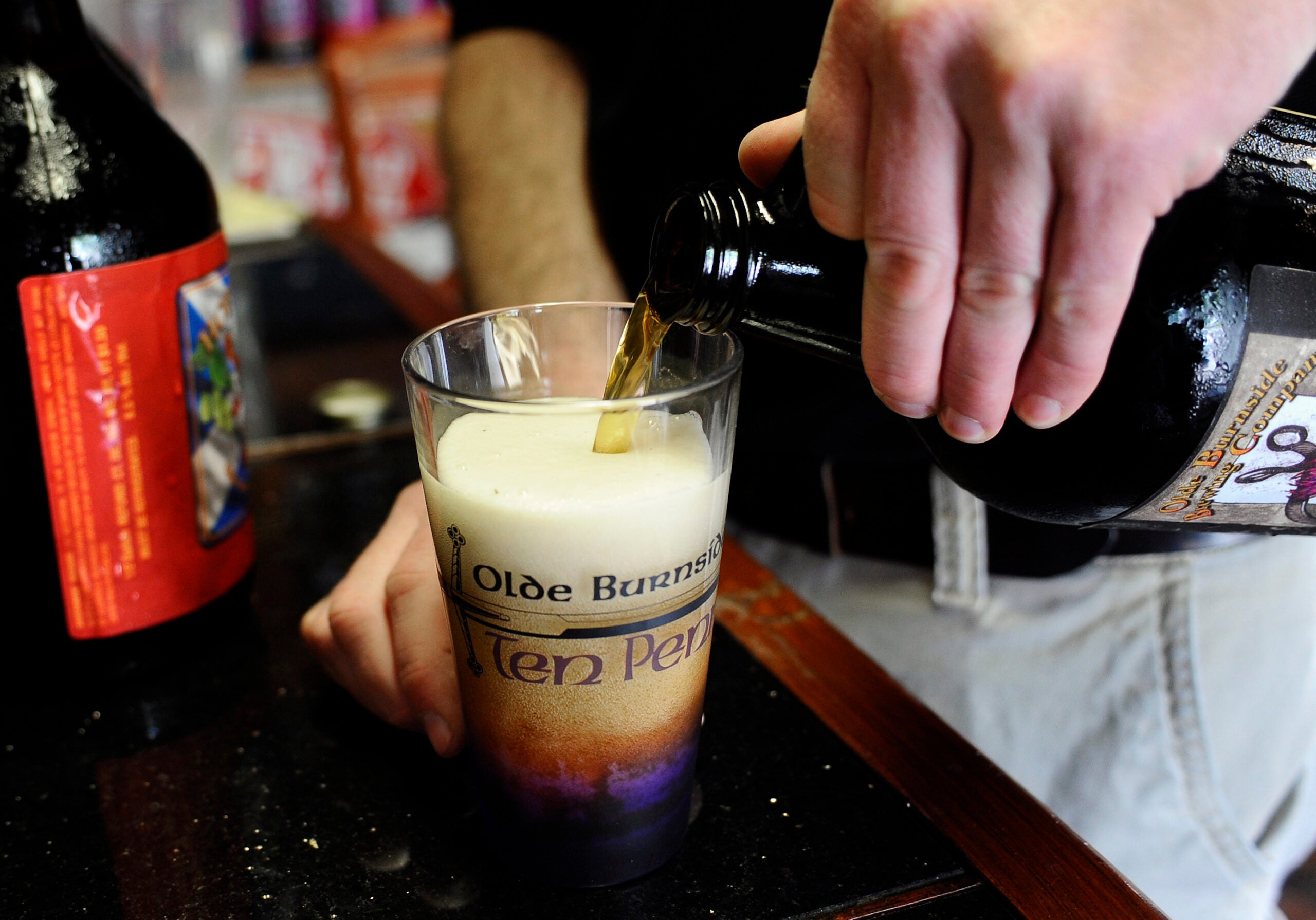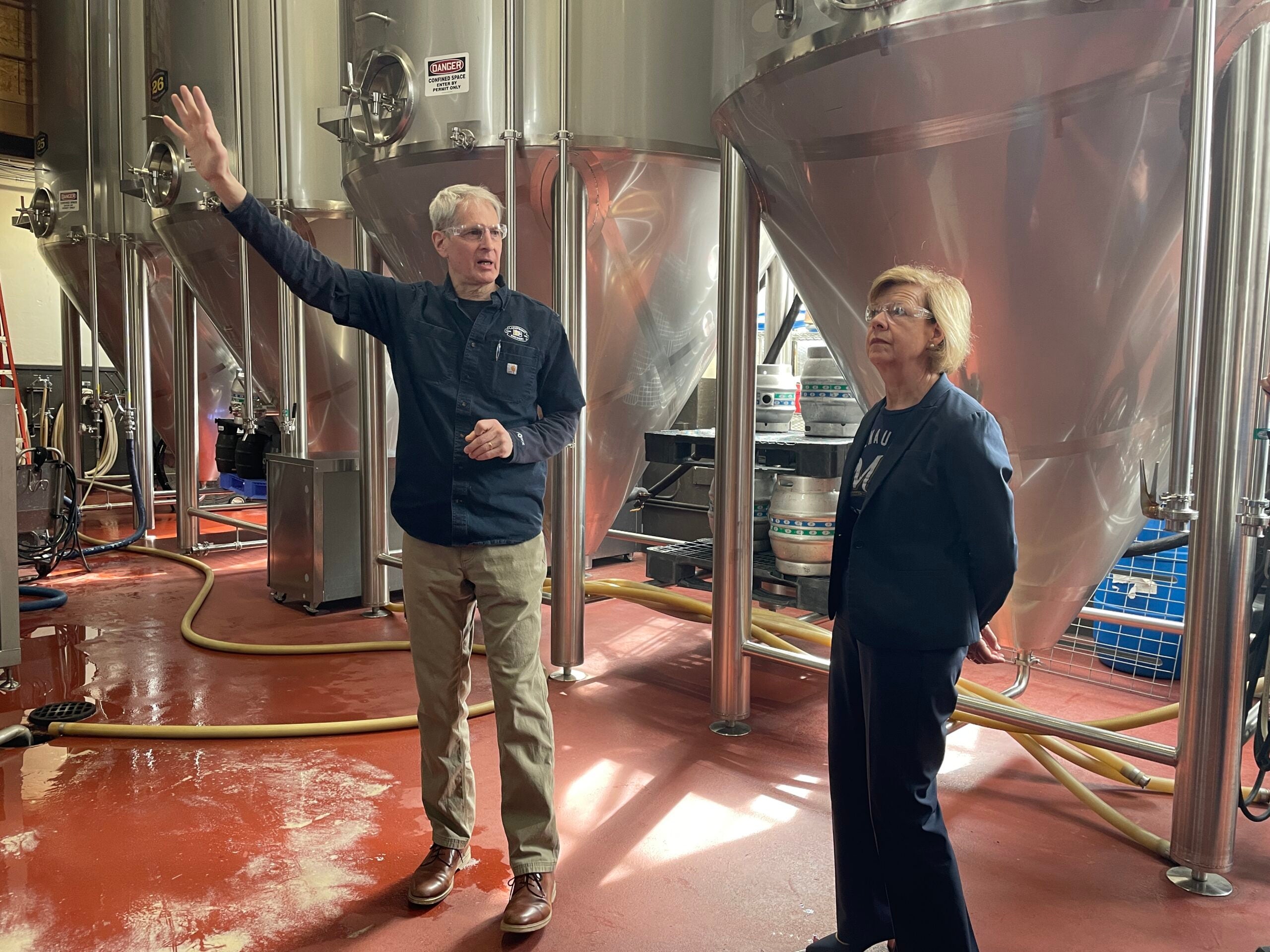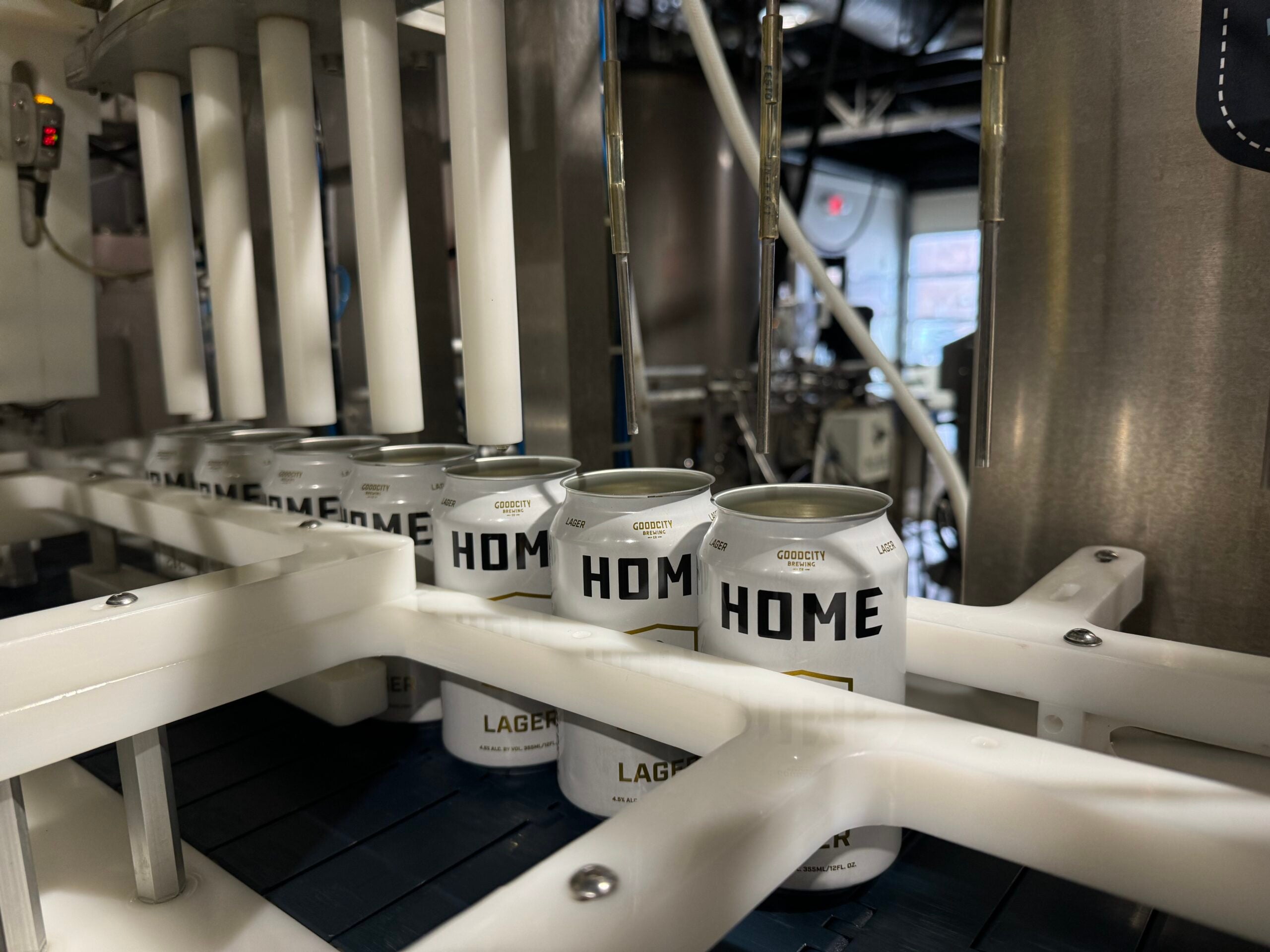Craft-brewed beer is hot right now. More than 5,200 craft breweries are operating across the country, according to the Brewers Association. That’s more than double the number that existed five years ago. Wisconsin’s craft-breweries grew around 40 percent during the same time span. Some craft brewers are betting their business on the demand for local brews.
A train blares in the background as Tim Nelson tours the production site for his new business Earth Rider Brewery. The site is in the heart of Superior’s industrial waterfront with ships and trains coming and going from nearby slips. The brewery is still under construction, but Nelson said he’s excited to be opening a brewery in Superior.
“The craft beer industry has seen a big growth over the past ten years. We are able now to fill in areas that haven’t had breweries in a long time, such as Superior… we have over 5000 right now in two years we’ll probably have 8,000 breweries,” he said. “So the trends are not slowing, people are still purchasing and loving local craft beer, so we’re excited to be a part of that movement.”
News with a little more humanity
WPR’s “Wisconsin Today” newsletter keeps you connected to the state you love without feeling overwhelmed. No paywall. No agenda. No corporate filter.
Nelson said they’re building a 20-barrel system that can produce 40 kegs at a time. After the first few months, he said they’ll begin packaging beer in cans. Nelson said it will be the first packaging brewery in Superior since 1967 and consumer demand is a driving force behind his plans.
“I think there is a bigger vision by a lot of people to consume and support localized anything be it food or beer or other products,” he said.
Thirsty Pagan in Superior has been brewing craft beer for customers to drink at its bar and restaurant since the 1990’s. Owner Steven Knauss believes part of the appeal of craft beer is where it’s brewed.
“Thirsty Pagan isn’t offered anywhere else. We aren’t anywhere else. We’re right here in Superior, Wisconsin — population 27,000. Are you kidding me? People come here from Madison, Chicago, Minneapolis–St. Paul, all points, all over the place … all over the world because we have beer,” he said. “They’re excited to drink it.”
Jason Coles, of Fargo, N.D., was having lunch with his family at Thirsty Pagan and drinking a Derailed Ale, one of the brew pub’s craft beers. Coles said he stops in every time they’re in Superior.
“I was here one time and they had a beer that they brewed with their own yeast that they had harvested and that was really cool because then you can get truly local,” he said.
Craft brewers in northern Wisconsin believe another reason they’re seeing demand for their beer is that it’s brewed with Lake Superior water. Earth Rider Brew Master Frank Kaszuba said it’s perfect for brewing.
“Lake Superior’s water is amazing partially because it is very soft, that means lacking hardness, lacking calcium and magnesium, and that means you can brew pretty much any style of beer that you want to,” he said.
Wisconsin ranks 10th in the nation for producing just under one million barrels of craft beer each year. Republican lawmakers recently introduced a bill that would allow craft brewers to expand production. Brew pubs would be able to make twice as much beer each year. Rep. Dale Kooyenga said the bill levels the playing field among all brewers.
“Especially, if Wisconsin becomes like the Napa valley of beer, which we historically have been, but we are losing momentum in that space,” he said. “I believe by supporting both our big breweries, small breweries, and everyone in between is that Wisconsin can be seen as the brewery state.”
Nelson said one of the reasons he chose to build his brewery in Superior is that Wisconsin is a beer-friendly state.
“It’s become a really top of mind thing for a lot of politicians, and administrators, that this is something that is really good for the economy, and local economy,” he said. “We create jobs, we refurbish infrastructure, and we sell our beer locally so that’s tax generation.”
Nelson and other brewers are more than happy to raise a glass to those supporting their craft.
Wisconsin Public Radio, © Copyright 2025, Board of Regents of the University of Wisconsin System and Wisconsin Educational Communications Board.






